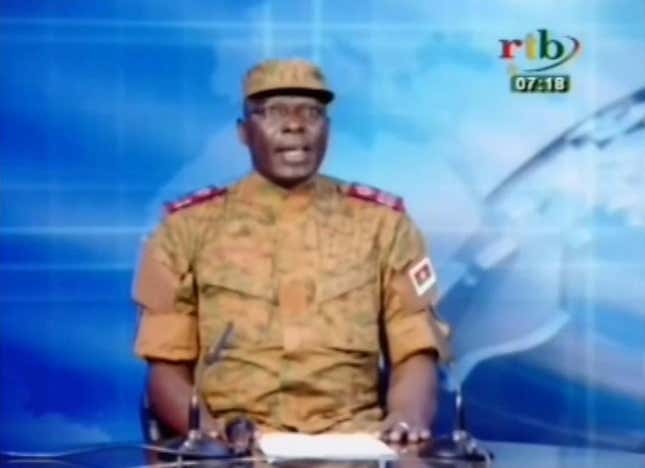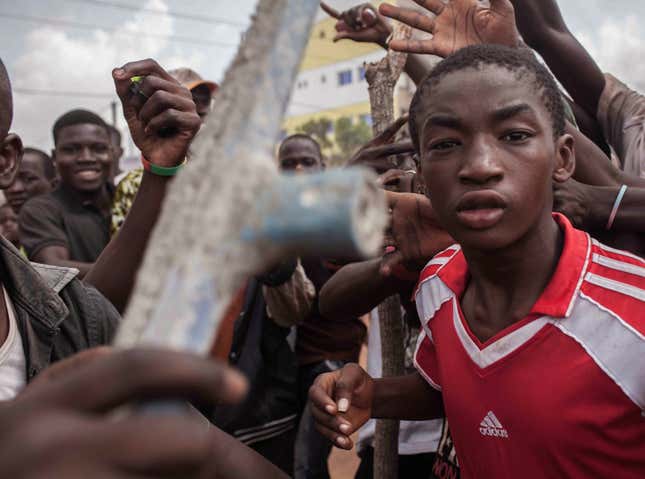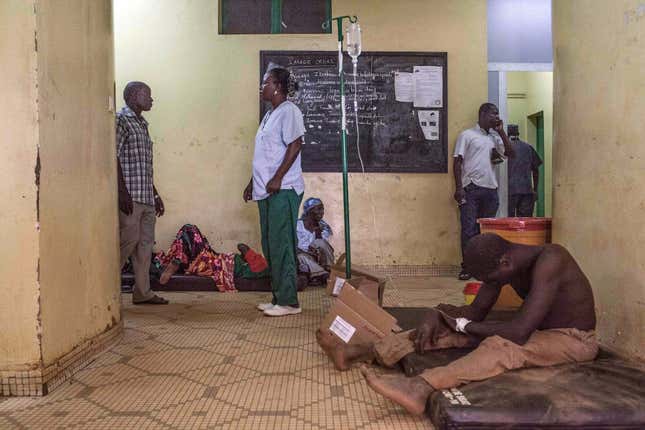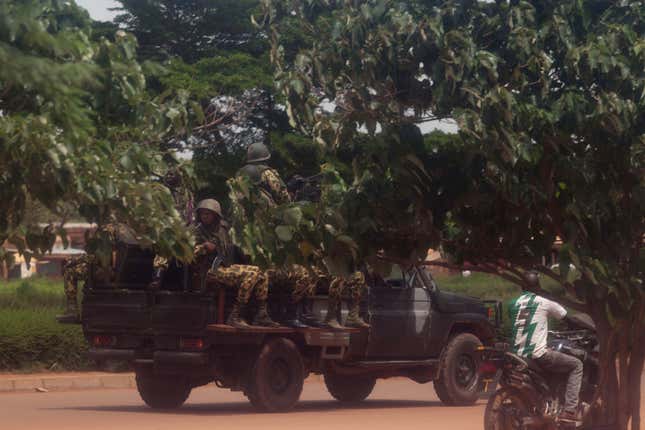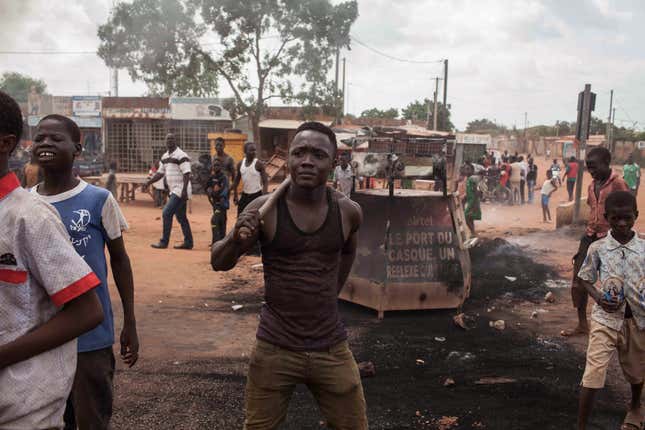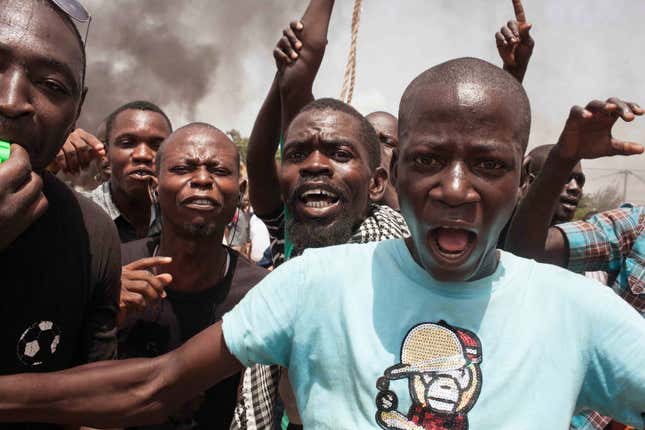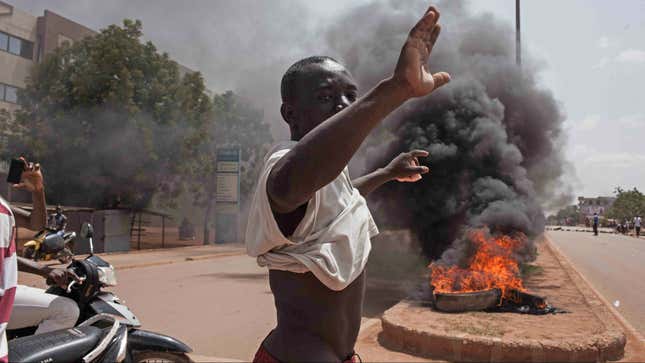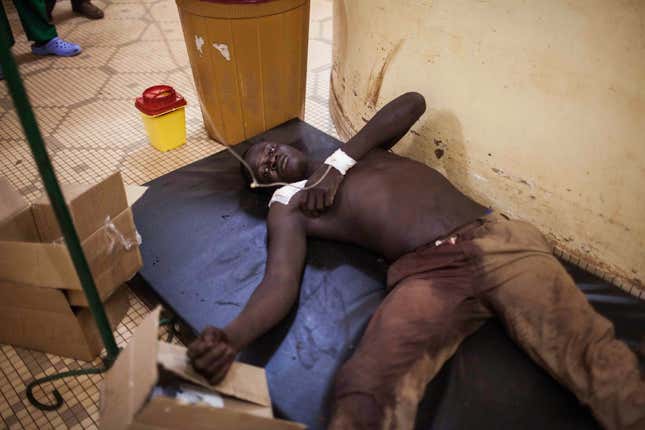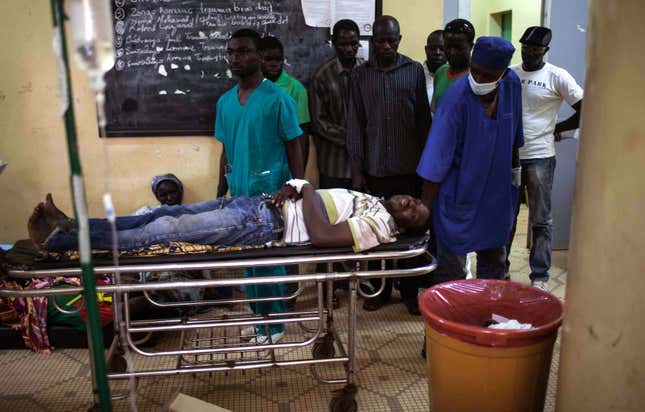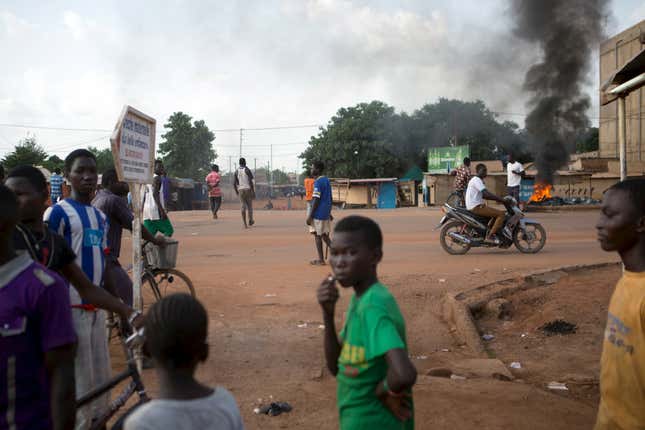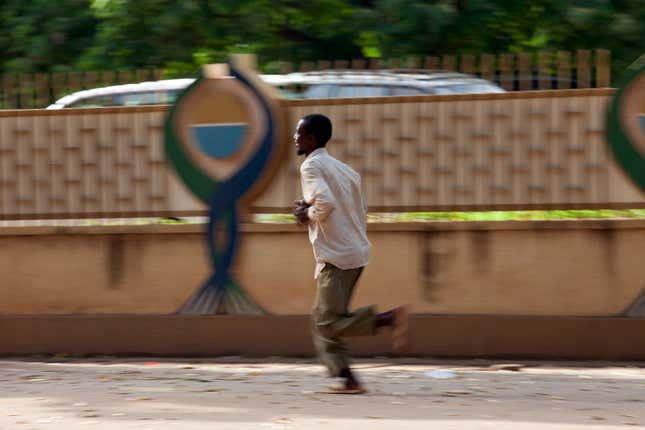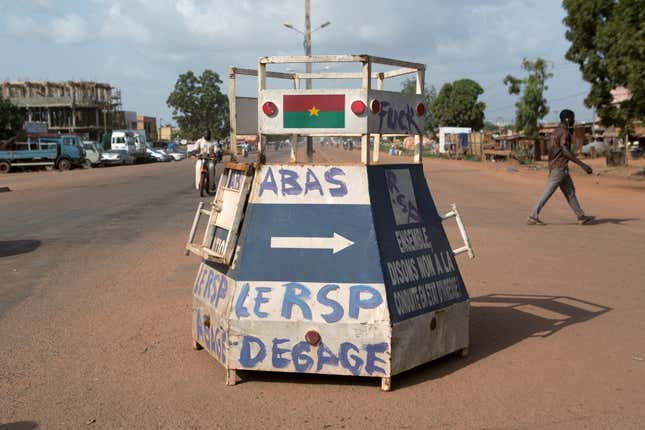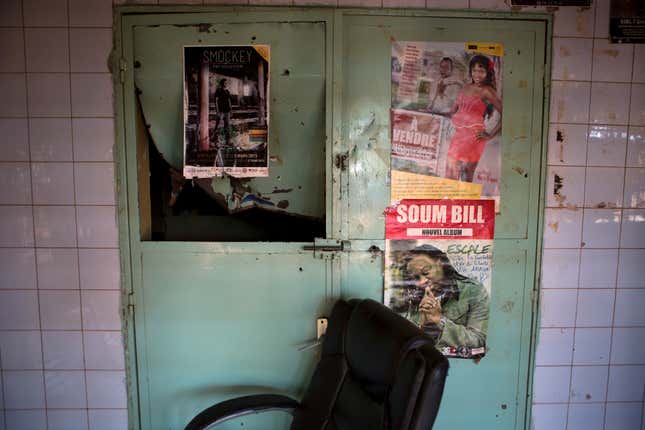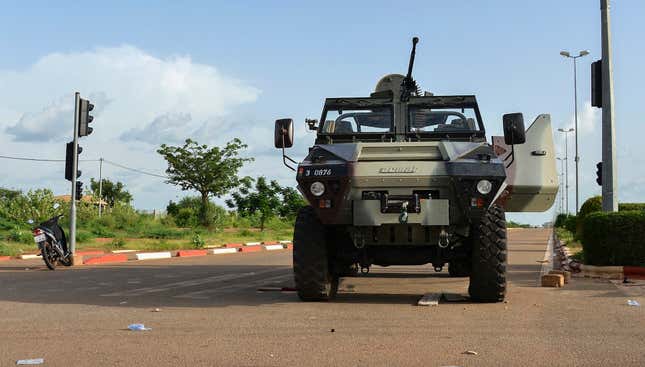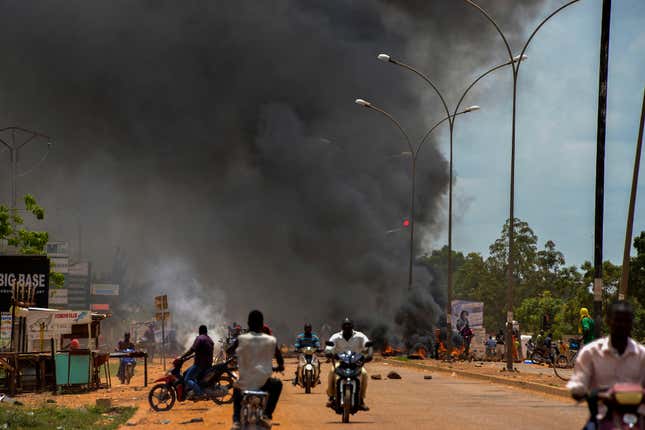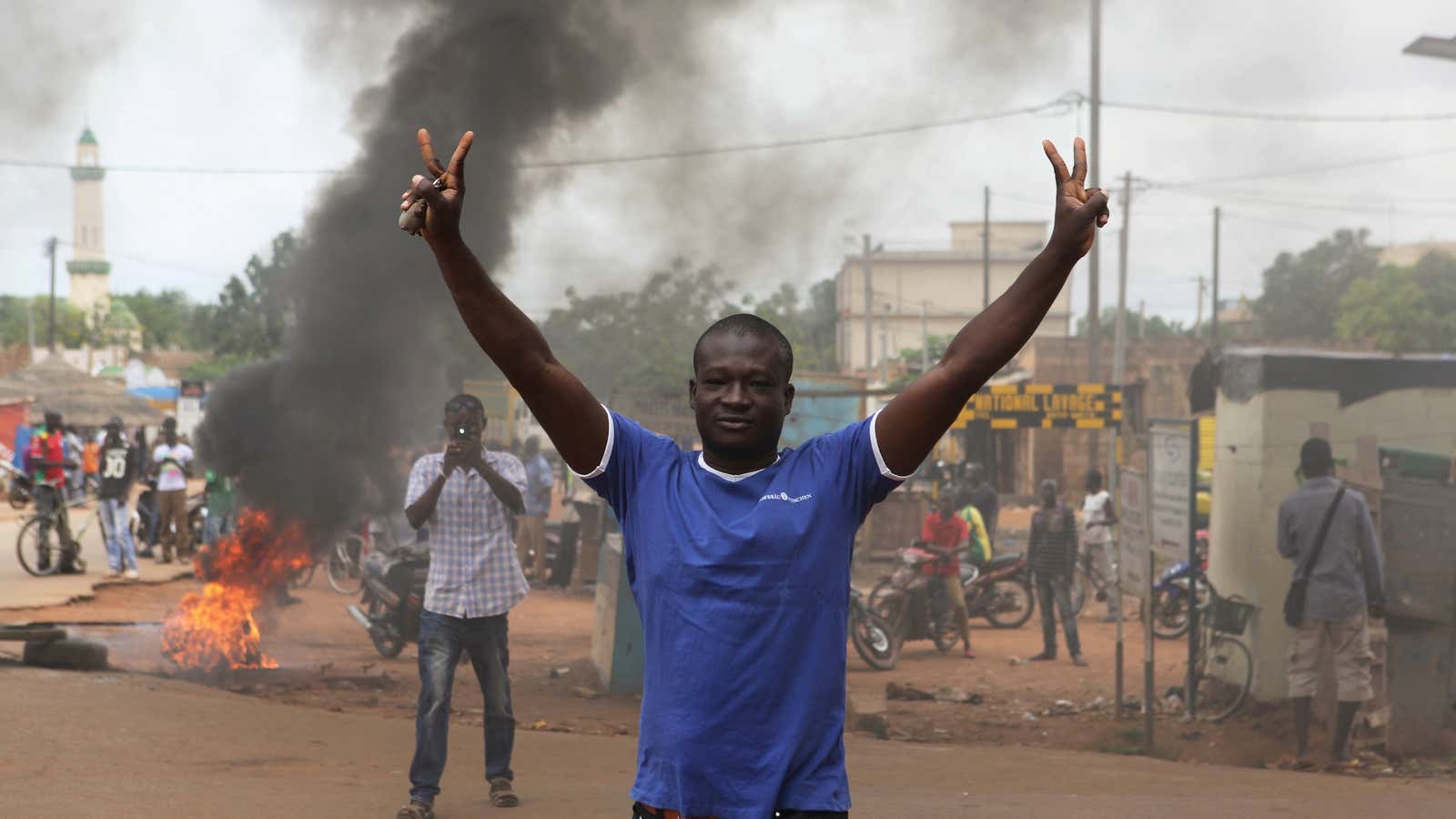At least three people have been killed in Burkina Faso as protesters clashed with soldiers over a military coup that has derailed the country’s return to democracy. Military leaders dissolved the country’s transitional government and placed former leader Blaise Compaoré’s longtime chief of staff, Gilbert Diendéré, in power yesterday (Sept. 17). Compaoré, in power for 27 years, was ousted last year after a wave of public protests. Elections were to be held in three weeks.
Coup leaders have imposed a 7pm curfew and closed the country’s borders. A local civil society group, Balai Citoyen, claims that more than 10 protesters have been killed. A number of protesters have also been detained. Private radio and television stations have stopped broadcast. Television stations are instead replaying state broadcasts of the military’s statements and international news coverage of events elsewhere.
The coup began when soldiers belonging to the powerful presidential guard, Regiment of Presidential Security (RSP), stormed a cabinet meeting on Wednesday, seizing the interim president and prime minister. The president, Michel Kafando, has been released but prime minister Isaac Zida remains under house arrest. Diendéré said that elections would be held, but did not specify when.
The international community has largely condemned the coup, which the coup leaders seem to have expected. ”There may be some kind of sanctions to face but we will ask the international community to be understanding of Burkina Faso,” Diendere told Reuters.
Leaders from neighboring West African countries are traveling to the country to try to mediate between the RSP and the interim government. “We are deeply disappointed that the self-interested actions of a few are threatening the historic opportunity that the people of Burkina Faso have to cast their ballots and build a new future for the country,” said Susan Rice, the US National Security advisor.
Here are some scenes from the unfolding crisis in the capital city of Ouagadougou:
